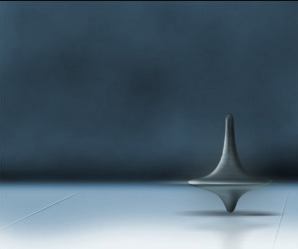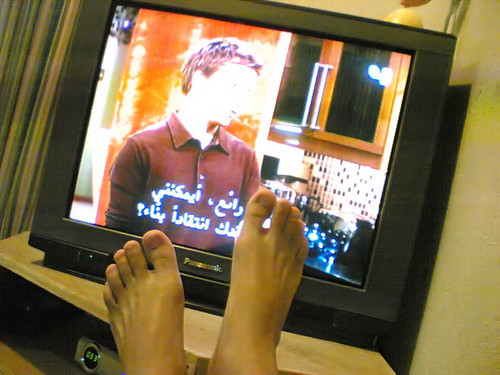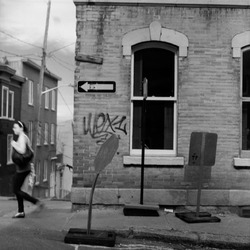After moving on my own to 4 large cities in the past 15-ish years, and visiting quite a few more, I can start to list a number of behavior patterns which say a lot about myself, obviously, but also about the urban systems. As a puzzled, stressed and curious newcomer, whether I quickly and fully embrace a system, or whether I avoid it for a long time is an interesting measure of how “usable” the system is. Take public transportation for example.
Inception'd
August 12, 2010

528 491
A word of warning: if you have not seen the movie Inception, you may be wary that the following could include storyline spoilers. Not quite. Even if you fully read and understand what follows, you will still have no clue what happens through the movie, and I will not spoil your experience. You may however skip the links until you have seen the movie, as they would not make much sense anyway.
At a turning point in the movie, we are shown a room where a dozen people, all hooked to a machine that lets them share a collective dream, come to sleep a few hours every day.
Those people are us.
They are sleeping in what looks very much like an opium den with wires in lieu of pipes and smoke. We learn they are addicted, no longer capable of dreaming on their own; they chose the reality of the shared dream over whatever their life may be like.
Ever wondered how much time our contemporaries, on average, spend per day hooked to our televisions? They are us. Or rather, they are a projection of how Inception’s director Christopher Nolan sees us: hooked to the machine 3 to 4 hours a day, dreaming a collective dream architected by the people in Hollywood, incapable of dreaming our own dreams any more.
Once you go down this rabbit hole and start seeing the whole film as a film about film (need to go deeper?), there is no turning back. If you start thinking this way, you’ll wonder if there is a reason why all location (but one – Casablanca) where Inception was shot are icons of mass culture: Los Angeles (Hollywood), London (The mighty pinewood studios), Paris (temple of high culture) and Tokyo (Gross National Cool). And isn’t Rupert Murdoch Australian, just like the character of energy mogul Fischer in the film?
I left my first viewing subscribing to one of the most the widespread theories about the story line.
I was wrong. Hint: the spinning top topples twice – in Tokyo and Paris-. And a half. Draw your own conclusions.
But I was also on to something: how the story ends for the characters of the movie actually doesn’t matter. The last shot of the movies shows us a piece of information that may or may not help us decide what is real and what is not. And you know what? The characters are no longer in the room, no longer looking at the artefact. They don’t care. The question is not theirs any more.
The question remains, not for them, but for us. And we’ve been asked the question many times before – we just didn’t notice. Why would an actor look straight at the camera and ask: “what do you believe is real?”. This, happening on the screen, or whatever awaits you when you get up, stretch you legs, rub your eyes and get back to your life?
Inception – the subtle and difficult art of planting an idea in someone’s mind while thy are deep in an altered state – is indeed performed throughout the movie. On us. And the simple fact that we all come out of the theater discussing for hours and days about what happened to Cobb (the main protagonist of the film, played by Leonardo Di Caprio) means that Christopher Nolan and his team have succeeded.
Previous/Next
Fixing the Bus System
2010-08-04
Vieux Québec
2010-12-28
Des fumerolles aux fortifications, de frontenac au parlement, trois fois le tour du vieux Québec

